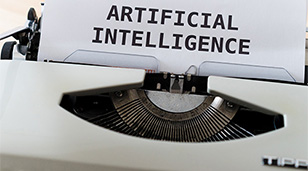The Potential Risks of AI for Health & Wellness Practitioners
As the use of artificial intelligence (AI) across healthcare starts to grow, it’s important for Health & Wellness practices to understand the potential pitfalls and risks that come with implementing any AI in their practice.
While AI has the potential to streamline processes and improve patient outcomes, it’s not a one-size-fits-all solution. AI has opened doors in the realm of diagnostics, treatment planning, and patient care, it’s essential to be aware of the possible challenges and pitfalls that go with its adoption.
In this blog, we’ll discuss the potential drawbacks of AI for practice owners and practitioners in fields such as osteopathy, chiropractic, and podiatry.
High Implementation Costs
Investing in AI technology can be significant for small business owners, as it can entail getting sophisticated tools, staff training, and ensuring continuous support.
Additionally, incorporating AI into existing systems might call for considerable time and effort, possibly affecting your daily operations. As a result, it’s crucial for practice owners and practitioners to assess the advantages and drawbacks of AI implementation, aligning it with their business aims and financial abilities.
Data Security and Privacy Concerns
Harnessing the power of AI systems requires robust datasets, but healthcare practitioners need to tread carefully when handling sensitive patient information.
EHRs, which form the backbone of AI tools, are susceptible to cyber threats, making data protection a priority. Practitioners must remain vigilant, adhere to regulations like GDPR, or face the consequences of jeopardized reputations and potential fines.
Ethical Considerations
Leveraging the power of AI in decision-making processes presents a double-edged sword.
While these tools rely on algorithms and data analysis to streamline processes, ethical challenges appear. Concerns about responsibility and accountability arise when errors or adverse consequences occur. For example, prioritisation of patients based on aspects like age or gender might lead to claims of discrimination.
As such, practitioners must be unwavering in their commitment to fair and unbiased design of AI systems.
Limited Human Interaction
Embracing the capabilities of AI in healthcare can usher in efficiencies, particularly through chatbots tackling patient enquiries. Yet, caution is needed in fields such as osteopathy and chiropractic care, where human touch and personal connections form the core of patient experience. Striking the right balance between high-tech solutions and vital human engagement is important to keep strong patient rapport.
Despite AI’s prowess, Health & Wellness practitioners must continue to trust their ability and judgement.
Dependence on AI and Loss of Expertise
The rapid sophistication of AI technology in healthcare brings along potential risks, such as an overreliance on AI systems, which may lead to the erosion of essential diagnostic and treatment skills among healthcare practitioners.
As newer professionals grow increasingly dependent on AI tools, clinical intuition and critical thinking abilities might suffer. To mitigate this risk, it is crucial for healthcare professionals to consistently cultivate their expertise and adapt to the integration of AI systems in their practices.
Transparent communication of AI’s benefits while addressing concerns is essential for both staff and patients.
Misinterpretation of AI-generated Data
AI systems can provide a wealth of information and insights, but interpreting this data can be challenging for practitioners without the necessary technical expertise. Misinterpretation of AI-generated data may lead to incorrect diagnoses or ineffective treatment plans, potentially harming patients and undermining your practice’s credibility.
Ensuring that practitioners are adequately trained in interpreting AI-generated data is crucial to avoid these pitfalls.
Legal and Regulatory Challenges
The rapid advancement of AI technology has outpaced the development of relevant legal and regulatory frameworks. As a result, Health & Wellness practitioners who adopt AI may face uncertainties surrounding liability, insurance, and licensing.
It’s crucial to remain informed about the evolving legal landscape and be prepared to adapt your practice’s policies and procedures accordingly.

Interested in getting help?
We offer multiple packages that suit all types of Health & Wellness businesses.
Click on the link below to find out more.
Resistance to Change
Finally, integrating artificial intelligence into the healthcare environment can be met with apprehension from both staff and patients. Healthcare professionals may question AI’s advantages or feel threatened in terms of job security.
On the other hand, patients could be apprehensive about receiving care through AI due to its impersonal aspect.
To effectively navigate this transition, cultivating a transparent and collaborative atmosphere is crucial to alleviate concerns and make the most of potential gains from AI technology.
AI for health practitioners – a summary
AI can (or will) clearly be beneficial to Health & Wellness practices however, just like any other technology, it must be used carefully and with diligent consideration of its potential implications.
We’ve flagged a few factors that you should consider when considering using AI – not least, weighing-up if the potential benefits outweigh the pitfalls associated with using AI.
At Evexus, we understand this dilemma.
If you want to see what difference our solution could make for your Health & Wellness practice, then get in touch!
We’d love to hear from you and explore how we can work together to move your practice forward.

